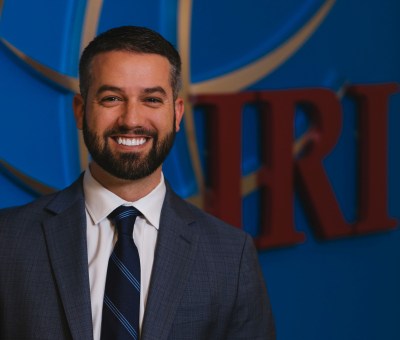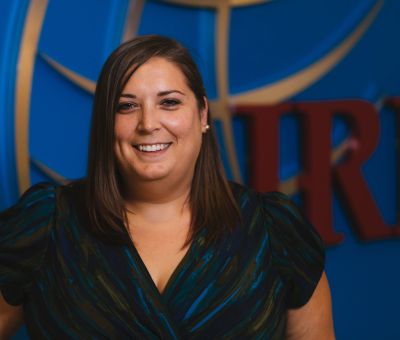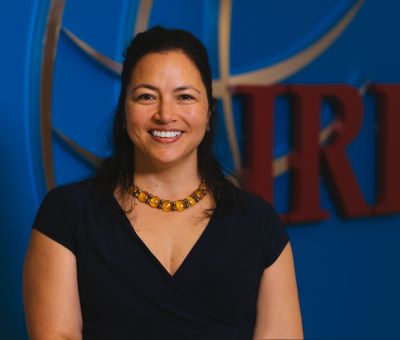
Focusing on What Works for International Anti-Corr…
Corruption is a highly complex threat to democratic governance worldwide, but one that to an extent can be addressed via…
The Maldives is one of the most dispersed countries in the world. As a nation consisting of 196 inhabited islands spread across 35,000 square miles, it confronts unique challenges to good governance. Since 2019, IRI has pursued a cross-government, multistakeholder approach to support the Maldives in standing as a democratic bright spot in the Indo-Pacific region by championing decentralization, citizen-responsive governance and the active political participation of all citizens.

In 2019, the Maldives’ Parliament enacted an amendment to the Decentralization Act that granted greater fiscal and administrative powers to local councils. This shift in policy created the opportunity for increased local ownership over decision-making and community development aligned with citizen priorities.
To respond to this opportunity, IRI began its principal program, Strong and Inclusive Maldivian Democracy, funded by USAID. Through the program IRI advocates for adaptive, efficient decentralization policy and strengthens the good governance capabilities of local councils and Women’s Development Committees to provide enhanced community engagement, service delivery and sustainable development throughout the country.
IRI works closely with local stakeholders at the island, atoll and city levels, as well as with national institutions, including the Local Government Authority, Information Commissioner’s Office, and Ministry of Cities, Local Government and Public Works. IRI’s interventions include decentralization policy conferences and fora, which connect national and local government officials, providing opportunities to improve implementation of decentralization practices. For example, the national government approved 338% more island Land Use Plans in 2023 than in the prior year, following a commitment made during an IRI supported decentralization conference to expedite the review and approval process for this critical element of the decentralization framework. IRI is also equipping government officials, particularly information officers, with the skills to effectively and efficiently comply with the country’s Right to Information Act, thereby ensuring institutional transparency and normalizing proactive information disclosure.
At the same time, IRI implements a youth leadership program funded by the US Department of State Bureau for Democracy, Human Rights and Labor. The Magey Rah (My Island) program engages youth across the Maldives in civic education and Emerging Leaders Academies, preparing them to become politically active change-makers and to implement a diverse range of small projects in island communities that are not often recipients of development assistance and outreach.
Across its programs in the Maldives, IRI is bolstering the transparency, accountability and resilience of democratic institutions and supporting the country’s nascent democratic journey.

Corruption is a highly complex threat to democratic governance worldwide, but one that to an extent can be addressed via…
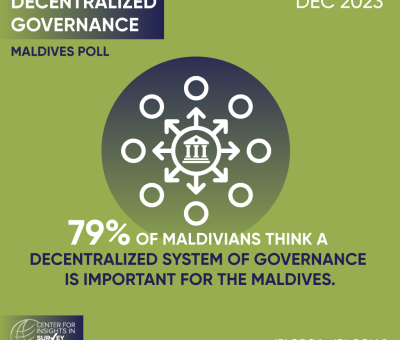
Malé, Maldives— A new nationwide poll of the Maldives by the International Republican Institute’s (IRI) Center for Insights in Survey Research (CISR) reveals strong support…
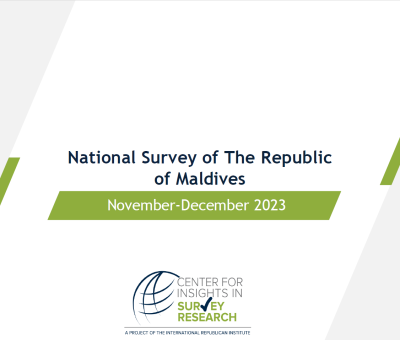
Malé, Maldives— A new nationwide poll of the Maldives by the International Republican Institute’s (IRI) Center for Insights in Survey Research (CISR) reveals…
